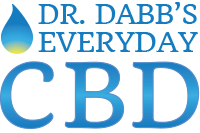In this last week of National Autism Acceptance Month, we’re exploring the use of cannabidiol (CBD) in the treatment of conditions related to individuals with autism.
But first, what is Autism?
Autism is a complex, lifelong developmental disorder that typically presents during early childhood and can impact a person’s social skills, communication, relationships, and self-regulation. Autism is defined by a certain set of behaviors and is a “spectrum condition” that affects people differently and to varying degrees, including restricted and/or repetitive behaviors, adherence to routines, and resistance to change. While there is currently no known single cause of autism, early diagnosis helps a person receive the support and services that they need, which can lead to a quality life filled with opportunity.
Autistic people are more likely than the general population to have comorbid disorders, including epilepsy, anxiety, several gastrointestinal issues like chronic constipation, diarrhea, or abdominal pain, food allergies, metabolic disruptions, and altered dietary nutrient intake are also associated with autism, which is where cannabinoid comes in.
The Research
In 2018, Barchel, et. al., researched whether CBD oil would help relieve four comorbidities commonly associated with autism: hyperactivity symptoms, sleep problems, self-injury, and anxiety. In the study, 53 children were given CBD-rich cannabis oil for an average period of 66 days. Approximately two thirds of the subjects experienced reductions in self-injury and rage attacks, hyperactivity, and sleep problems. Administering CBD improved anxiety in 47.1% of the children.
In 2019, Fleury-Teixeira, et. al., published a small study in Frontiers in neurology about a study with 18 patients who were given pure CBD between 6 to 9 months, and all showed improvements in one of eight symptom categories evaluated in the study, including Attention Deficit/Hyperactivity Disorder; Behavioral Disorders; Motor Deficits; Autonomy Deficits; Communication and Social Interaction Deficits; Cognitive Deficits; Sleep Disorders and Seizures, with very infrequent and mild adverse effects, which would indicate use of CBD in autistic individuals could lead to an increase in quality of life. Of note is that studies referenced by Fleury-Teixeira, et. al.’s study showed that the side effects of CBD were infrequent and less damaging than drugs traditionally used either for autism, ADHD, sleep disorders, or epilepsy.
In mid-2020, researcher at University of California San Diego School of Medicine began recruiting children between the ages of 7 and 14 for a Phase III clinical trial to determine whether CBD reduced severe behavior problems in children with autism. CBD has been found to modulate nerve cell messages in regions of the brain regulating anxiety, executive function and behavior, blocking signals to key neuronal receptors that, when overstimulated, may trigger seizures.
Conclusion
A common theme in my blog is that there is a lot of research to be done into all of the amazing cannabinoid compounds. CBD, CBN, and CBG have been found to have properties use to minimize the impact of seizure disorders like epilepsy and used medicinally to increase appetite, assist in sleep, reduce chronic pain, reduce inflammation, and so many more therapeutic applications. Currently, there is only one CBD product approved by U.S. Food and Drug Administration to treat two different forms of severe epilepsy. Here at Dr. Dabb’s Everyday CBD, we believe it is only a matter of time until more peer-reviewed research confirms what so many people around the world have experienced with cannabinoid products. In the case of CBD use in individuals with autism, the low-risk of side effects combined with the potential improvements in quality of life is worth exploration!
References:
Barchel, D., Stolar, O., De-Haan, T., Ziv-Baran, T., Saban, N., Fuchs, D. O., Koren, G., & Berkovitch, M. (2019). Oral Cannabidiol Use in Children With Autism Spectrum Disorder to Treat Related Symptoms and Co-morbidities. Frontiers in pharmacology, 9, 1521. https://doi.org/10.3389/fphar.2018.01521
Fleury-Teixeira, P., Caixeta, F. V., Ramires da Silva, L. C., Brasil-Neto, J. P., & Malcher-Lopes, R. (2019). Effects of CBD-Enriched Cannabis sativa Extract on Autism Spectrum Disorder Symptoms: An Observational Study of 18 Participants Undergoing Compassionate Use. Frontiers in neurology, 10, 1145. https://doi.org/10.3389/fneur.2019.01145

